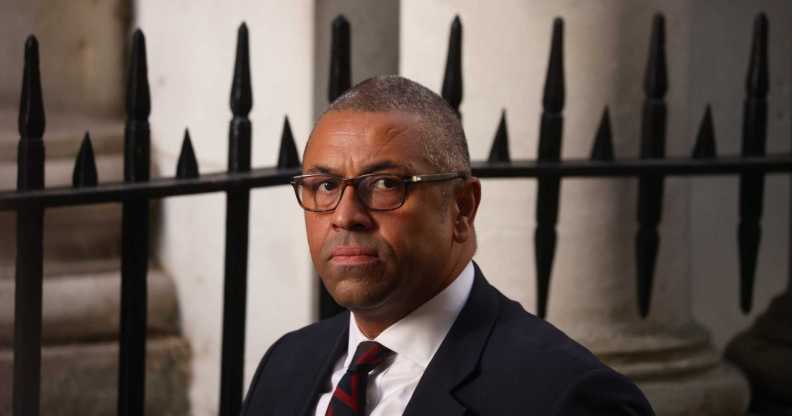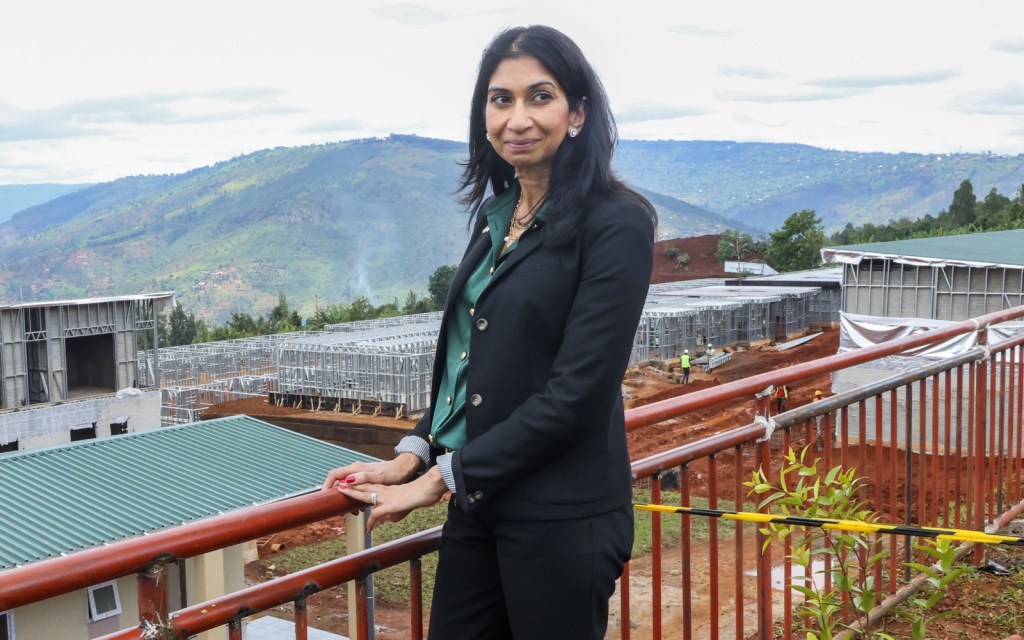Government admits – again – that LGBTQ+ people are at risk in Rwanda

Home secretary James Cleverly (Dan Kitwood/Getty Images)
The UK government has once again admitted that LGBTQ+ people could face discrimination in Rwanda if its asylum deal goes ahead.
In a policy statement about the Safety of Rwanda (Asylum and Immigration) Bill, the Home Office said queer migrants will be safe in the African nation – despite its poor human rights record and the concerns expressed by LGBTQ+ advocacy groups – but admits they could face “some” discrimination.
The statement follows home secretary James Cleverly signing a new treaty in Rwanda last week, after the Supreme Court ruled an earlier version of the plan was illegal and put migrants at real risk.
“Most reports of any alleged human rights violations in Rwanda relate to Rwandan nationals who are critics of the government,” the policy statement reads. “There is no evidence in the sources consulted that asylum seekers or refugees are considered by the government to be of interest on grounds of their political opinion based on the countries they are from.”
The statement goes on to say the government is “aware that refugee protests over cuts to food rations which took place at Kiziba refugee camp in 2018 resulted in fatalities” but that incident was, Conservatives claimed, an “isolated case and there is no information on similar incidents since”.
Refugee and LGBTQ+ groups have repeatedly warned that the plan could see migrants being sent back to their country of origin or a third nation where they are at risk of mistreatment – known as refoulement.
“This is because there are substantial grounds for believing that asylum seekers would face a real risk of ill-treatment by reason of refoulement to their country of origin, if they were removed to Rwanda,” the Supreme Court’s ruling on the case stated.
Lord Reed, who issued the ruling, added that there are “serious and systematic defects in Rwanda’s procedures and institutions for processing asylum claims”, whereby, there are “concerns about the asylum process itself, such as the lack of legal representation, the risk that judges and lawyers will not act independently of the government in politically sensitive cases, and a completely untested right of appeal to the High Court”.

Rosalind Duignan-Pearson, the communications manager at Micro Rainbow, a charity providing temporary housing for LGBTQ+ asylum seekers in the UK, previously told PinkNews that people they work with are “terrified at the prospect of being sent to Rwanda”.
She went on to say: “They fled their countries of origin to escape violent LGBTQI-phobia to find safety and legal protection in the UK. Now they are threatened with being sent somewhere where safety and rights are definitely not guaranteed, especially for LGBTQI people.”
Homosexuality is legal in Rwanda – progressive compared with soe neighbouring countries – but LGBTQ+ people still face societal discrimination and abuse.
The UK government’s own travel advice for the country states that homosexuality remains “frowned on by many” in Rwanda.
“LGBT individuals can experience discrimination and abuse, including from local authorities. There are no specific anti-discrimination laws that protect LGBT individuals,” it reads.
The government secured a majority of 44 when MPs voted on the second reading of PM Rishi Sunak’s flagship illegal migration policy yesterday (12 December), with 313 MPs voting for the Safety of Rwanda bill and 269 opposing the proposed legislation. Thirty-seven mostly Tory right-wingers either did not vote or abstained.

